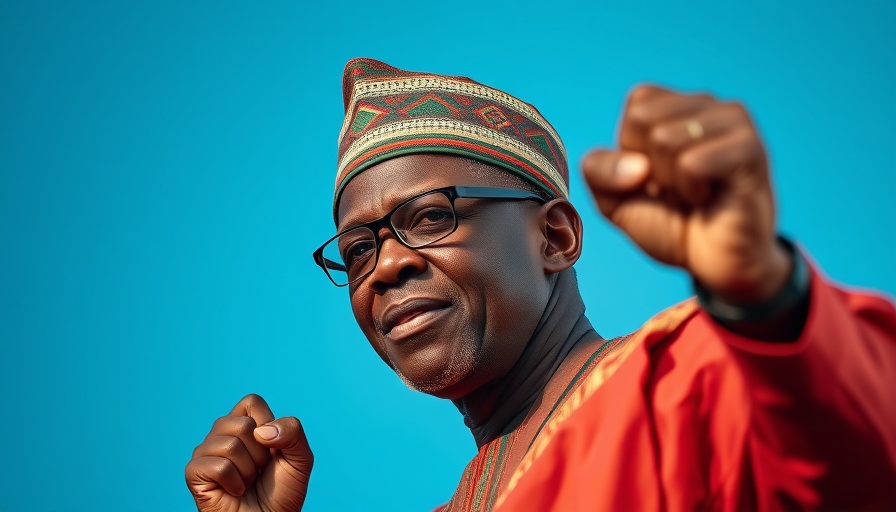
Reflecting on the Life of Muhammadu Buhari: A Complex Legacy
The recent declaration of a public holiday in Nigeria following the death of former President Muhammadu Buhari has ignited both grieving and celebrating across the nation. As preparations are made for his burial in his hometown of Da, it is significant to reflect on the complexities of his legacy—a mixture of praise, criticism, and deep emotional responses from various sectors of the society he had impacted.
In 'Federal Government Declares Public Holiday for Former President Muhammadu Buhari', we delve into the multifaceted narrative surrounding Buhari’s passing, prompting discussions that spark deeper analysis of his leadership legacy.
A State in Mourning
In the wake of the announcement from Governor Dikor Rada of Katsina regarding Buhari's burial arrangements, the atmosphere in Da is one of solemnity and anticipation. As expected, politicos from across Nigeria are traveling to pay their final respects including notable figures like President Bola Ahmed Tinubu and various state governors. A sense of loss prevails, yet opinions diverge on Buhari’s impact during his time in office, eliciting a mix of admiration and controversy.
Understanding Buhari’s Leadership Style
Buhari’s leadership, characterized by decisiveness interwoven with a degree of remoteness, has prompted mixed assessments. Some analysts laud him for his stern approach, which was perceived as an attempt to instill discipline in governance. Others, however, perceived his delays in crucial appointments and responses during his presidency as a lack of accountability. His mixed record creates a backdrop for examining the duality of public memory: a president who sought to unify while simultaneously navigating significant national challenges.
The Economic Landscape Under Buhari
From an economic perspective, Buhari's administration was marked by a delicate balance of welfare concerns and tough reforms. His reluctance to dismantle costly subsidies, which became a central issue, indicates his wariness about the potential backlash from the citizenry. Prolongation of these policies has been discussed as both a cautious approach to governance and a factor contributing to Nigeria's ongoing economic challenges. Critics argue this delayed necessary reforms, leaving President Tinubu with weighty fiscal issues upon taking office.
Political Ramifications and Lessons Learned
As the country bids farewell to Buhari, there are valuable lessons for the current administration. The necessity of decisive action and the importance of transparent governance resonate throughout discussions on Buhari's legacy. Observers argue that the new administration under Tinubu inherits not just policies but also the imperative to learn from past mistakes to overcome Nigeria's current economic trials. The discourse echoes a hope for a more proactive engagement with the citizenry and a significant reevaluation of previous strategies.
Community Perspectives on Buhari’s Final Days
Buhari’s passing also raises questions about forgiveness and reconciliation. A poignant appeal for forgiveness from the president's sister highlights the need for unity among Nigerians, particularly those holding divergent views on his leadership. It underscores the enduring pain some felt during his term due to policies seen as detrimental. Such calls aim to pave a path for healing that transcends the political landscape, urging discussions beyond mere policy assessments.
As communities gather to memorialize Buhari, many express hopes for a future that builds on lessons learned from his leadership. The convergence of memories—both good and bad—serves as a reminder of the interconnectedness of governance and society, and the implications of those dynamics for leadership ahead.
Continuing the Dialogue on Buhari’s Impact
This nuanced review of a complex figure such as Muhammadu Buhari invites continued dialogue, encapsulating the compelling identity of a leader who both united and divided Nigeria. It prompts critical inquiry into what constitutes effective leadership within the unique context of Nigerian governance. As the nation mourns, it ponders future directions—learning from its past to foster growth and unity moving forward.
 Add Row
Add Row  Add
Add 


 Add Row
Add Row  Add
Add 

Write A Comment